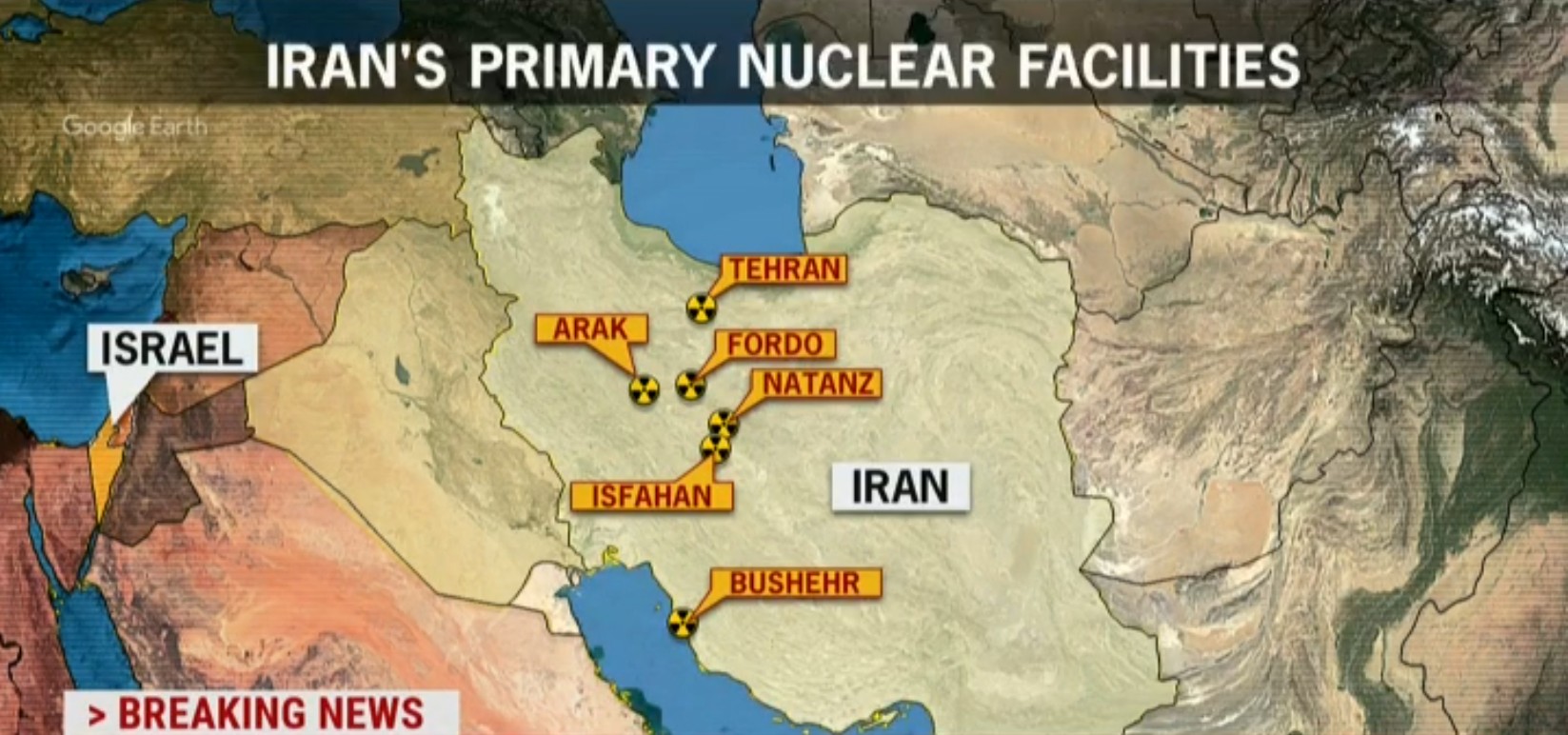
A Sudden Turn: U.S. Bombs Fordow, Natanz, and Esfahan
On a humid Saturday evening, President Donald Trump took to Truth Social and announced what many in Washington had only whispered about.
The United States had bombed three of Iran’s most fortified nuclear sites—Fordow, Natanz, and Esfahan. The move, which Trump called a “very successful attack,” marks a dramatic escalation in the ongoing conflict between Israel and Iran, and it places the U.S. squarely in the center of a rapidly intensifying Middle East crisis.
The Decision and the Strike
After a week of tense deliberations and mounting pressure from both allies and critics, Trump’s decision came swiftly. According to multiple reports, including CNN and The Independent, American B-2 bombers—capable of carrying the 30,000-pound “bunker buster” bombs—were dispatched from Missouri, flying across continents to deliver their payloads on Iranian soil. The Fordow facility, buried deep within a mountain and long considered nearly impregnable, was the primary target. Natanz and Esfahan, both central to Iran’s uranium enrichment efforts, were also hit. Trump’s statement was characteristically blunt: “A full payload of BOMBS was dropped on the primary site, Fordow. All planes are now outside of Iran air space”.
The Context: From Diplomacy to Detonation
Just days before, Trump had dangled the possibility of a diplomatic breakthrough, telling reporters that Iran had “a substantial chance of negotiations that may or may not take place.” But as talks faltered and Israel’s own strikes on Iran escalated, the calculus changed. Trump’s critics, including some within his own party, warned of the risks. Kentucky Rep. Thomas Massie called the move “not constitutional,” while others, like Senator John Fetterman, praised it as “the correct move”.
The Fordow and Natanz sites have long been at the heart of international concern. Fordow, in particular, is a symbol of Iran’s determination to shield its nuclear ambitions from outside interference. I remember standing in a D.C. think tank years ago, listening to a former intelligence officer describe Fordow as “the Rubik’s Cube of military targets—solvable, but only with the right tools and a lot of nerve.” Saturday’s strike suggests the U.S. believes it has both.
The Fallout: Global and Domestic Reactions
The immediate aftermath is a swirl of uncertainty. Iran’s Foreign Affairs Minister, Abbas Araghchi, warned that U.S. attacks would be “very, very dangerous,” and the world is now bracing for potential retaliation. The Pentagon, meanwhile, is on high alert, with assets massing in the region. Online, the reaction has been predictably polarized. MAGA influencers and anti-war conservatives decried the move as reckless, while hawkish voices cheered what they see as a necessary show of strength.
On social media, Trump’s supporters and detractors traded barbs. Steve Bannon, never one to mince words, called it “kicking over a hornet’s nest.” Yet, for many in the national security establishment, the real question is what comes next. Will Iran retaliate directly against U.S. interests? Will this embolden hardliners in Tehran, or force them to the negotiating table?
A Historic Moment—Or a New Quagmire?
Trump, for his part, framed the operation as a turning point. “This is an HISTORIC MOMENT FOR THE UNITED STATES OF AMERICA, ISRAEL, AND THE WORLD. IRAN MUST NOW AGREE TO END THIS WAR,” he wrote, promising to address the nation at 10 p.m. Eastern. The sense of history is palpable, but so is the anxiety. It’s the first time since the Iranian revolution that an American president has ordered direct strikes on Iran’s nuclear infrastructure.
As I watched the news break, I couldn’t help but recall the words of a retired general I once interviewed: “In the Middle East, every action is a beginning, not an end.” Tonight, that feels truer than ever.
What’s Next?
The world waits for Iran’s response. Diplomats scramble, markets jitter, and families across the region brace for what may come. For now, the only certainty is that the U.S. is no longer a bystander in the Israel-Iran conflict. The stakes, already high, have just been raised.
